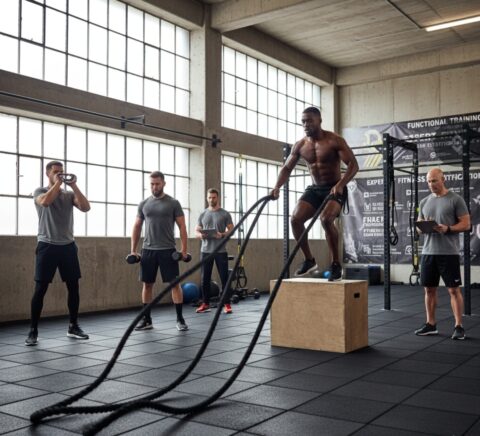Melbourne’s suburbs are special. Each one has its own style. Fitzroy is artsy and cool. South Yarra is fancy. Richmond loves sports. St Kilda is lively with beaches and nightlife. In these busy areas, SEO in Melbourne needs to focus on hyperlocal ideas to stand out. Big, general plans don’t work here. Let’s look at how to use hyperlocal SEO to help your business in simple, clear steps.
Understanding Hyperlocal Dynamics
Hyperlocal SEO is about targeting tiny areas, like a street or postcode. People want services close to their home, maybe just a short walk away. For example, searching “plumber in Melbourne” is too broad. “Plumber in Prahran” is better. “Emergency plumber near Chapel Street” is the best. Google likes this kind of detail, and people feel you understand their area.
Every suburb has its own personality. Your words and content should match that personality. A general plan feels lazy. Instead, use the suburb’s streets, shops, or landmarks to connect with locals.
Start With Suburb-Specific Pages
Don’t put all your locations on one website page. Each busy suburb needs its own page. Make these pages special by writing fresh content for each one. Talk about nearby streets, parks, or shops, like Lygon Street for Carlton or Bay Street for Port Melbourne. Add a map or simple directions, like how many minutes it takes from Melbourne’s city center. Show pictures of your work in the suburb, like a job near a local park. Write like you’re talking to someone who lives there. This helps locals feel you know their area and tells Google you’re connected to it.
Embed Local Keywords Naturally
People search with exact places in mind. They might type “dentist in Essendon” or “yoga class near Balaclava Station” when they want a service. Use these phrases in your page titles, descriptions, and headings, but make it sound natural. Don’t repeat the same words too much. Try different versions, like “Essendon dental care” or “yoga by Balaclava.”
Each suburb has special words people use. In Carlton, they might search “Lygon Street café.” In Thornbury, they might look for “High Street shops.” Using these words shows you know the suburb. This makes people and Google trust you more.
Google Business Profile Optimisation
A weak Google Business Profile can lower your ranking. Fill out every part with details about the suburb. Use the exact address. If you travel for work, like a plumber, set a service area. List hours that fit the suburb’s lifestyle, like staying open late in St Kilda for its nightlife. Add photos of your work in the area, like your team outside a local park, and write the suburb’s name in the photo captions. Ask customers from the suburb to leave reviews and reply to them fast. Google likes active profiles, and this helps you show up higher in searches.
Leverage Local Backlinks
Backlinks are when other websites link to yours. Local backlinks are even better. Connect with community groups or bloggers who write about the suburb. Sponsor a school event or sports team to get a link. Share a story with a small suburb newspaper or website. List your business in local directories, like a trader group or a niche site. These links tell Google you’re a trusted part of the suburb, which helps your ranking.
Create Suburb-Based Blog Articles
Write blog posts about specific suburbs, not general topics. For example, write about “Pet Care Tips for South Yarra Apartments” or “Fixing Old Homes in Camberwell.” Talk about local events, like festivals or sports seasons, or use facts, like “20% of Thornbury homes need new roofs after rain.” These posts attract people searching for answers in their suburb, and they’re more likely to choose your business.
Highlight Local Reviews and Case Studies
Reviews and stories from the suburb make people trust you. Share a review from a client in Moonee Ponds who liked your work near Queens Park. Or tell a quick story, like “We fixed lights for a Flemington café in two hours.” These examples feel real to locals because they know the places. Google also sees these details as proof you’re part of the suburb, which helps your ranking.
Tap Into Local Social Media Groups
Suburbs have active online groups, like on Facebook. Kensington people talk about workers like plumbers. Brunswick groups share café ideas. Hampton locals discuss home fixes. Join these groups and share helpful tips, like how to care for homes in the area. Post your blog posts to answer their questions, but don’t spam. Being helpful makes people see you as a trusted local business.
Use Structured Data and Schema Markup
Schema markup is code that helps Google understand your business. Add details like your address or the suburb you serve. This makes your site easier for Google to read, which can improve your ranking. It’s a bit technical, but it’s worth it because many businesses don’t do it. For example, markup can show your Collingwood shop’s address or your Malvern service area. This helps you stand out in searches.
Hyperlocal Landing Page Extras
Make your suburb pages feel very local. Add directions, like how to get there by tram or car. Mention places people know, like “near Victoria Park Station” in Collingwood or “close to Glenferrie Road” in Malvern. Add a FAQ section with local questions, like “Do you fix apartments in Southbank?” or “Can you deliver to Brighton homes?” These details keep people on your site and show Google you’re tied to the suburb.
Mobile Optimisation for On-the-Go Searches
People in busy suburbs search on their phones while walking or on trams. If your website is slow or hard to use, they’ll leave. Make sure your site loads fast, has easy menus, and shows local details like a map or phone number. A site that works well on phones ranks better and keeps people happy, especially in active areas like St Kilda or Richmond.
The Final Edge
Hyperlocal SEO is about being exact. Melbourne’s suburbs are like small battlegrounds. Big, general plans don’t win. Focus on streets, local places, and the suburb’s vibe to stand out. Every detail, from words to reviews, builds your ranking and trust with locals.
For more help, contact Make My Website. They can help you reach local people fast. Start small, stay local, and watch your business grow!
Disclaimer: This article is for information only. The SEO tips are based on common ideas, but search engine rules change a lot, so results aren’t promised. Talk to an SEO expert before trying these tips to follow Google’s rules on content, links, and words. The author and publisher are not responsible for problems, like penalties or lower rankings, from wrong SEO use. Check Google’s Webmaster Guidelines to stay safe.





